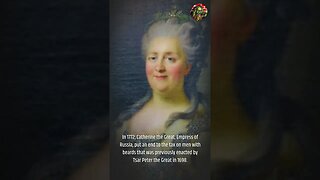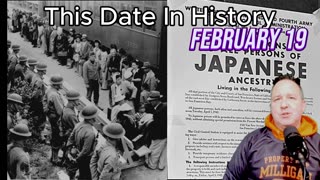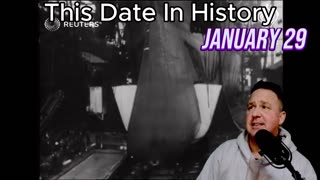Amazing Historical Events That Occurred on 3/27 🎉 #shorts #history
Amazing Historical Events That Occurred on March 27th
Juan Ponce de León was a Spanish explorer and conquistador who is credited with being the first European to set foot on what would later become the U.S. state of Florida. Ponce de León sailed to this region as part of an expedition in 1513, when he spotted land from a distance and named it “Florida” after Easter "Pascua Florida," which means “feast of flowers” in Spanish. He continued exploring the coastline for about two weeks before turning back towards home. From there, Ponce de León's discoveries helped fuel further explorations by subsequent expeditions throughout the 16th century that eventually led to Spanish colonization.
Under the terms of the Royal Charter, the East India Company established a presence in Bombay and created a trading post that became one of the most important hubs of British trade with India. With control of Bombay, the company was able to expand its trading activities throughout India and beyond, eventually becoming a dominant power in India for more than two centuries. The East India Company's influence played a major role in shaping modern Indian history, including developing transportation systems such as railways and roads, introducing English education and law systems, and building many iconic structures like Victoria Terminus in Mumbai. By 1858, the East India Company had authority over almost all of present-day India. However, due to widespread discontent against their rule, their reign ended shortly thereafter when Queen Victoria declared direct control by the British Crown over all former company territories in 1858.
The Treaty of Madrid was a peace treaty between France and Spain signed in 1721 after the War of the Quadruple Alliance. This war had been fought since 1718, when England, Austria and Holland joined forces against their rival countries France and Spain in an effort to limit their power. The war finally ended with the signing of the Treaty of Madrid. The treaty required France to give up its claim to Spanish territories in Italy, as well as much of its naval forces, while Spain gave up its claims to southern parts of the Dutch Republic. It also contained other provisions such as disarmament, recognition of existing borders and demilitarization. The treaty was ratified by both countries soon afterwards, thus ending the War of the Quadruple Alliance once and for all.
Kerosene is a type of petroleum-based fuel commonly used in home heating and lanterns. It was first discovered in the mid-1800s by Canadian geologist Abraham Gesner. Initially, it was used for medical and industrial applications and then, in 1855, Gesner patented it and began selling it as a safe and affordable alternative to other lighting oils such as whale oil. The invention of kerosene revolutionized lighting technology at the time as it allowed people to burn a clean, bright light that could be used indoors without having to worry about toxic fumes or noxious odors. In addition, its low price point made it accessible to nearly everyone. This increased illumination safety which, in turn, led to an increase in educational opportunities for children of all socioeconomic backgrounds who were previously unable to study after dark due to lack of proper lighting. Today kerosene is still widely used in many parts of the world for both residential and commercial purposes.
The 14th Amendment to the United States Constitution was passed in 1868, two years after US President Andrew Johnson vetoed a civil rights bill that would have granted full citizenship to African Americans. The main purpose of the amendment was to guarantee the rights of citizens and provide equal protection under the law regardless of race or color. It also aimed to prevent state laws from violating or superseding federal laws. Specifically, it granted all people "born or naturalized in the United States" citizenship and prevented any state from taking away these rights without due process of law. In addition, it prohibited any person who had held a Confederate public office from seeking public office or holding public office again without approval by Congress, a provision known as the "Ironclad Oath". This amendment has been seen as a major victory for civil rights and has been cited as setting an important legal precedent that is still relevant today.
-
 0:42
0:42
Welcome to the party pal
1 year agoAmazing Historical Events That Occurred on 5/4🎉 #shorts #history
5 -
 0:47
0:47
Welcome to the party pal
1 year agoAmazing Historical Events That Occurred on 4/6🎉 #shorts #history
30 -
 2:48
2:48
RokinSokinBobbyD
2 months agoMarch 16: Unbelievable historical moments in history
941 -
 1:31
1:31
RokinSokinBobbyD
3 months agoFascinating February 21 Historical Events
548 -
 1:55
1:55
RokinSokinBobbyD
3 months agoUnforgettable Events On This Date February 19 in History
2141 -
 2:47
2:47
RokinSokinBobbyD
3 months agoFebruary 29: Unbelievable Historical Events
1731 -
 2:32
2:32
RokinSokinBobbyD
2 months agoMarch 25: The Most Significant Events in History
4713 -
 1:44
1:44
RokinSokinBobbyD
5 months agoRemarkable moments that occurred on December 26 in history
241 -
 2:23
2:23
RokinSokinBobbyD
2 months agoShocking events on March 11 throughout history
6311 -
 2:08
2:08
RokinSokinBobbyD
4 months agoThe Most Memorable Events on January 29 Throughout History
981